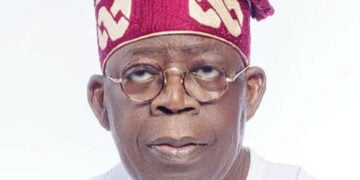Nigeria has been listed among African countries in the African Development Bank (AfDB) and its partners $20 billion Desert-to-Power initiative.
The Project is conceived to develop 10 GW of solar power across Nigeria and 10 other countries in the Sahel zone.
AfDB President, Dr Akinwumi Adesina, said this while speaking on Regional Corridors: “Quest to Integrate Africa” at the ongoing 2023 African Investment Forum (AIF) in Marrakesh, Morocco.
According to him, this includes the Sahel regional transmission lines.
He said the bank also supports the development and expansion of regional power pools in collaboration with the African Union Commission and Regional Economic Communities.
“Driving our support for the development of regional transport corridors is the need to fast-track the integration of African economies, lower transport costs, connect landlocked countries and improve regional trade. It is also to ensure that critical infrastructure, especially roads, ports, rails, connect countries to zones of major agricultural potential or where abundant mineral resources exist,” he said.
According to Adesina, the fully operational Africa Continental Free Trade Area (AfCFTA) offers incredible opportunities for boosting intra-regional trade.
He said this could be achieved through infrastructure development, which was why AfDB provided more than $44 billion.
”We also devoted $2.5 billion to developing regional infrastructure. The bank’s support for regional integration focuses on catalysing public and private investment in transport and electricity connections. We are financing the development of regional electricity corridors to assure reliable and competitively priced electricity.”
He reiterated some bank investments, including the $15.2 billion Lagos to Abidjan highway.
According to him, much progress is being made in developing regional corridors, yet several more corridors exist to be developed.
“To fully optimise the benefits of developing regional corridors across Africa, we should focus on five priority areas. We need to dedicate pooled financing facilities to support the preparation and development of corridor projects. Special industrial zones should be developed around the corridors to optimise the existing infrastructure in these corridors.
“We need to put a systematic approach and platform in place to identify and syndicate around the development of strategic regional corridors. Development of regional corridors should be complemented with establishing one-stop border posts for trade facilitation and reduced travel times on the corridors. Concessional financing such as the African Development Fund offers low-income countries unmatched resources to commit to developing regional corridors,” he pointed out.
According to Adesina, the full balance of financing needed for the development of the regional corridor will be fully paid for by the Fund, adding that, “That is the Africa we want: a fully interconnected Africa, using regional corridor infrastructure to unleash economic opportunities and assure national and regional value chain competitiveness. A well-connected Africa will be a more competitive Africa. Regional corridors are gateways to wealth for Africa. Let’s build more of them; let’s make Africa wealthy.”
Also speaking,, ECOWAS Commissioner for Infrastructure, Energy and Digitisation, Mr Sediko Douka reiterated the need for a connection that needs logistics for development. He said, transportation Infrastructure, trade facilitation and data monitoring to build a reliable community that thrives was crucial for African development.











